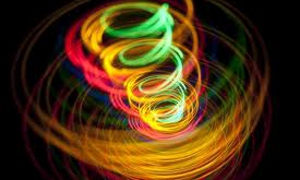Nobel voor ‘bizarre verschijnselen’

Wineland van het National Institute of Standards &Technology (NIST) en de niversity of Colorado Boulder wint metHaroche van het Collège de France en de Ecole Normale Supérieure inParijs voor hun uitzonderlijke werk aan de interactie tussen lichten materie.
Bizar en fragiel
Hun werk is zo bijzonder “by demonstrating the directobservation of individual quantum particles without destroyingthem,” aldus het Nobel Comité. “They have openedthe door to a new era of experimentation with quantum physics” enhebben daarbij “ground-breaking experimental methods thatenable measuring and manipulation of individual quantum systems,”ontdekt en ingezet.
“Single particles are not easily isolated from their surroundingenvironment and they lose their mysterious quantum properties assoon as they interact with the outside world. Thus many seeminglybizarre phenomena predicted by quantum physics could not bedirectly observed, and researchers could only carry out thoughtexperiments that might in principle manifest these bizarrephenomena.
Through their ingenious laboratory methods Haroche and Winelandtogether with their research groups have managed to measure andcontrol very fragile quantum states, which were previously thoughtinaccessible for direct observation. The new methods allow them toexamine, control and count the particles.”
Een nieuwe standaard voor ‘tijd’
Dit onderzoek is extreem fundameenteel, maar pas op, zegt hetNobel Comité, de toepassingen ervan zijn al gaande. En buitengewoonspannend.
“Their ground-breaking methods have enabled this field ofresearch to take the very first steps towards building a new typeof super fast computer based on quantum physics.
Perhaps the quantum computer will change our everydaylives in this century in the same radical way as the classicalcomputer did in the last century. The research has also led to theconstruction of extremely precise clocks that could become thefuture basis for a new standard of time, with more thanhundred-fold greater precision than present-day caesiumclocks.”
Meest Gelezen
Vrouwen houden universiteit draaiende, maar krijgen daarvoor geen waardering
Wederom intimidatie van journalisten door universiteit, nu in Delft
‘Burgerschapsonderwijs moet ook verplicht worden in hbo en wo’
Raad van State: laat taaltoets nog niet gelden voor hbo-opleidingen
Hbo-docent wil wel rolmodel zijn, maar niet eigen moreel kompas opdringen
